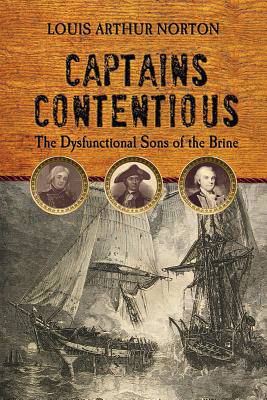
- Retrait gratuit dans votre magasin Club
- 7.000.000 titres dans notre catalogue
- Payer en toute sécurité
- Toujours un magasin près de chez vous
- Retrait gratuit dans votre magasin Club
- 7.000.0000 titres dans notre catalogue
- Payer en toute sécurité
- Toujours un magasin près de chez vous
Description
Norton draws from a wealth of primary and secondary sources to present biographical sketches that illustrate the five captains' reckless bravado and frequent antagonism toward their fellow officers. Representing different colonies and originating from diverse social and economic backgrounds, this dysfunctional band of fractious mariners shared a common lust for glory and penchant for infighting as they pursued favor and rank at the expense of civility and cooperation. They were often at odds with the Continental Congress and Marine Committee that commanded them and openly feuded among themselves. Yet they still managed to achieve notable victories against superior British naval forces.
To understand better how these naval heroes turned dysfunction into derring-do, Norton reads their distinctive personalities against the contrasting demeanor of their adversaries in the British ranks. He concludes with psychological inferences about the leadership qualities displayed by these captains, which proved to be strikingly valuable in sea combat. Enhanced by sixteen illustrations, Norton's study offers new insights into the maritime history of the American Revolution as well as an original hypothesis about the psychological traits useful to good naval command.
Spécifications
Parties prenantes
- Auteur(s) :
- Editeur:
Contenu
- Nombre de pages :
- 185
- Langue:
- Anglais
- Collection :
Caractéristiques
- EAN:
- 9781570038075
- Date de parution :
- 07-06-09
- Format:
- Livre relié
- Format numérique:
- Genaaid
- Dimensions :
- 152 mm x 231 mm
- Poids :
- 408 g

Les avis
Nous publions uniquement les avis qui respectent les conditions requises. Consultez nos conditions pour les avis.






